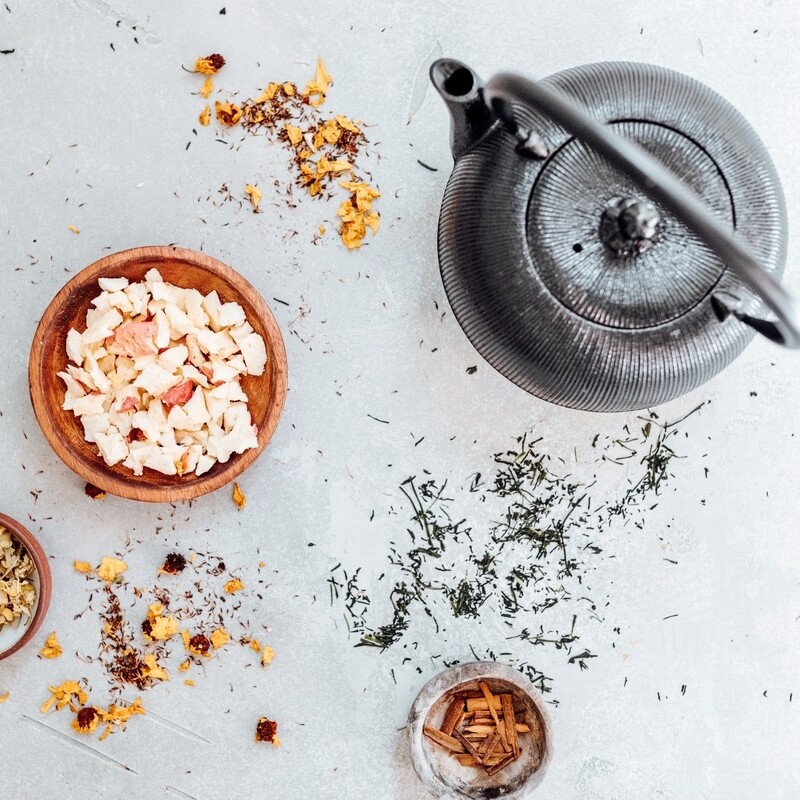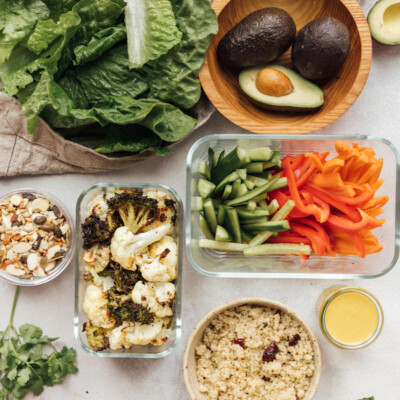We all have that wellness friend. You know, the one who keeps herbs like tulsi, astragalus, and valerian root on hand. We aspire to be her, but we don’t know where to start. Good news—you don’t need to add herbalist to your resume! All you need is a willingness to learn (and a dose of courage). When it comes to health and wellbeing, there’s beauty in both an Eastern and Western approach. A wonderful middle ground? Healing herbs. Otherwise known as medicinal plants, these specific herbs are foraged for medicinal value. And their roots run deep. In this guide, learn the secrets of the trade: medicinal herbs for beginners.
Featured image by Michelle Nash.



What are medicinal herbs?
Known as herbal remedies, medicinal plants aren’t new news. We’ve long used them to minimize ailments, pain, and disease. To this day, many Americans turn to herbs as a source of healing. Their leaves, bark, stems, roots, seeds, and flowers can promote longevity, boost immunity, help balance hormones, and much more. Particularly as a beginner, it’s important to keep in mind that medicinal plants are most helpful when used as a complementary therapy. Herbs aren’t considered a cure-all.
Disclaimer: Herbal remedies are not currently regulated by the Food and Drug Administration (FDA) to determine their safety or efficacy. It’s important to seek treatment from a healthcare professional, as pain, disease, and infections can progress and may lead to complications if not properly treated. Speak with your doctor before using any herbal remedies. Some may cause interactions with medications you are taking.


Are adaptogens and herbs the same?
Note quite. Hence the name, adaptogens help our bodies adapt to stress. They’re a combination of plants, herbs, and mushrooms that aid in anxiety, fatigue, and overall wellbeing. Ultimately, adaptogens are meant to maintain balance (homeostasis) in the body. They’re popular in the wellness world—and we’re not shy about our love for them.
At any rate, herbs and adaptogens are not interchangeable terms. Herbs refer to the full catalog of medicinal plants, while adaptogens refer to nine specific plants.

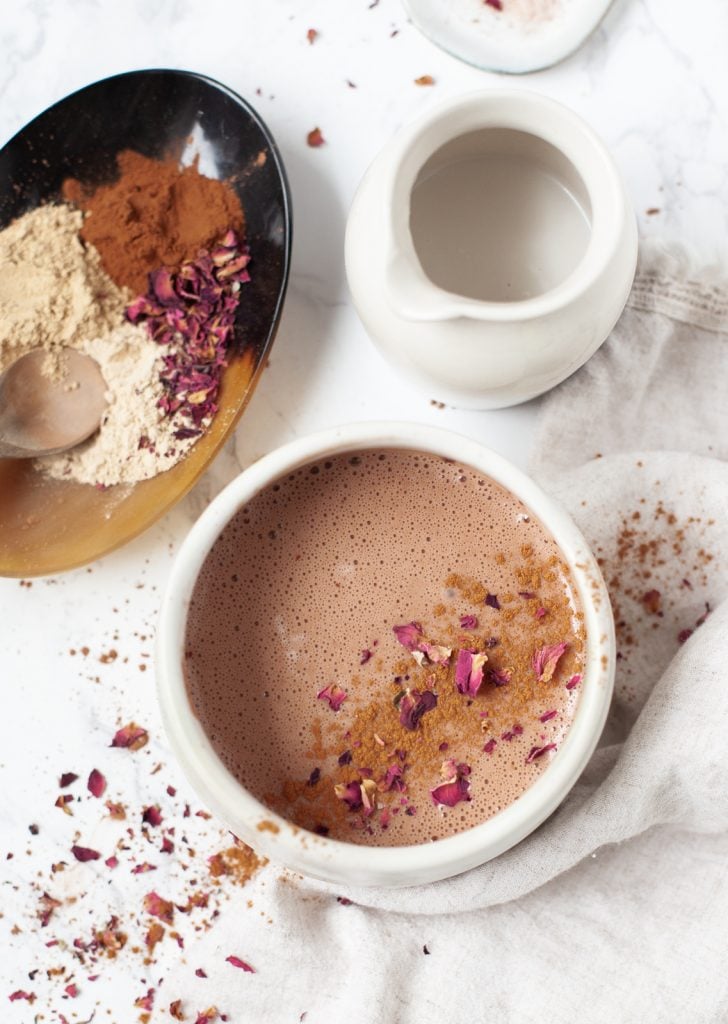
Medicinal Herbs for Beginners
With 2023 under way, there’s no better time to sip, steam, and sprinkle herbs into your favorite warm concoctions. Best of all, they’re versatile and anti-inflammatory. Whether you feel run down, anxious, under the weather, or simply want to give yourself extra nourishment, herbs are here to help. You can infuse healing plants into your everyday rituals. For example, spoon ashwagandha into your morning coffee. Put cinnamon on your chia pudding. Mix dried oregano and thyme into your favorite pasta sauce. No need to overcomplicate!

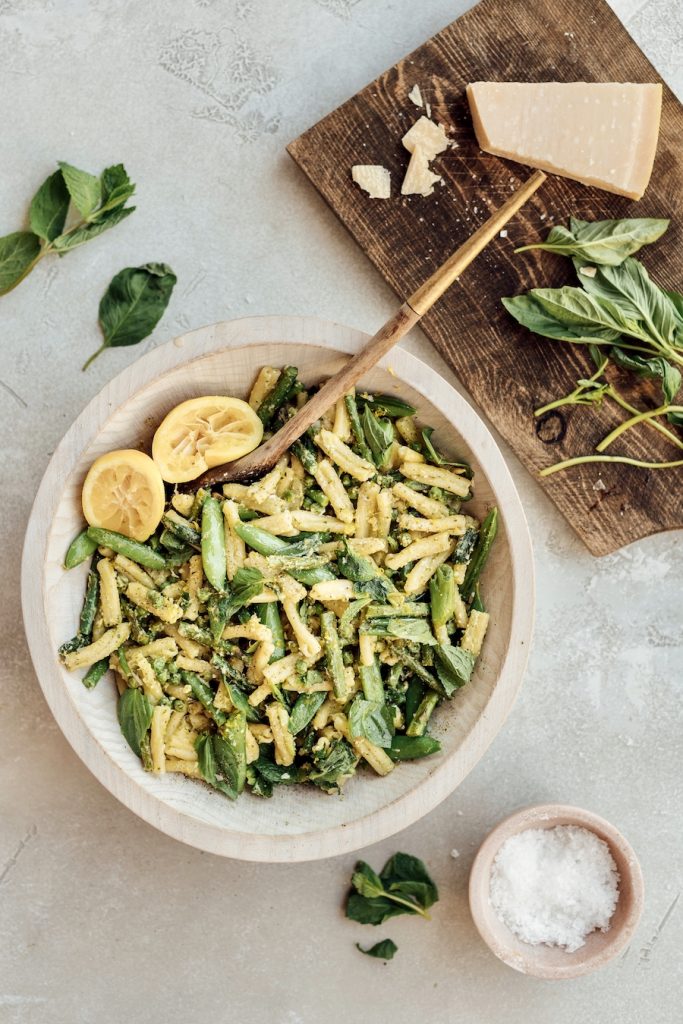
How To Use Medicinal Herbs
The sky’s the limit. You can incorporate medicinal herbs into teas, infusions, and spice blends.
Tea
For tea, make a warming spiced tea to support your digestive and circulatory system. An earthy chai—with rose and reishi—will do the trick.
Steam
To steam, grab dried or fresh herbs to steep in a big pot. Inhale their soothing powers. Oregano, thyme, or rosemary can help ease congestion.
Spice
Lastly, spice blends add warmth and flavor to dishes and drinks. Make a turmeric latte with cinnamon, ginger, black pepper, and maca.

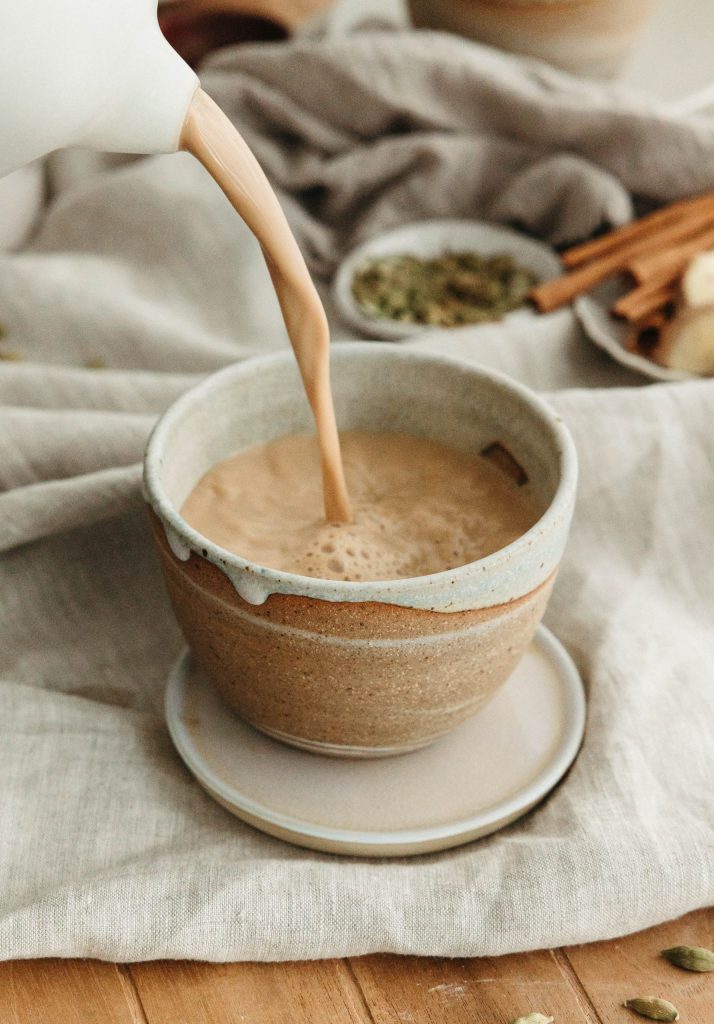
20 Common Medicinal Herbs
Below are common medicinal herbs. Tell your healthcare providers about any herbs or dietary supplements you are using.
Immune System
Astragalus: Astragalus is a century-old remedy in Chinese medicine. It has many health benefits, including immune-boosting, anti-aging, and anti-inflammatory effects.
Shiitake: In Chinese medicine, shiitake are thought to boost health and longevity, as well as improve circulation. You can cook with both fresh and dried shiitake.
Ginseng: Ginseng is used as a tonic and aphrodisiac. Disclaimer: there is a large variation in the quality of ginseng sold. People with diabetes should not use ginseng.
Tulsi: Originating in India, tulsi tea is known to strengthen the immune system, promote longevity, and enhance wellbeing. It’s great for hot flashes and other menopause symptoms. Additionally, it can lower stress.
Licorice: Licorice root may have potent antioxidant, anti-inflammatory, and antimicrobial effects. Early research suggests it may ease upper respiratory infections.

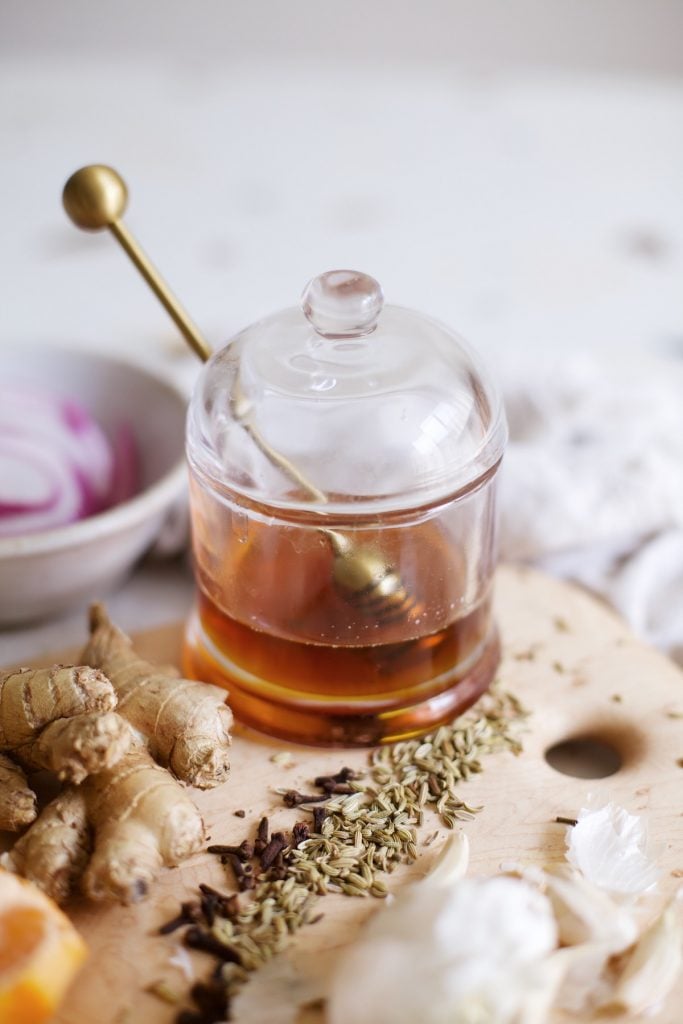
Nervous System
Milky Oats: Milky oats offer a wealth of nutrients: B-complex, potassium, calcium, magnesium, iron, and zinc. Because of this, milky oats can ease physical and mental exhaustion.
Valerian: Valerian is used to treat sleeplessness and reduce anxiety. Research suggests that valerian may be a helpful sleep aid.
Chamomile: Considered by some to be a cure-all, chamomile is commonly used in the U.S. (for anxiety and relaxation). In Europe, chamomile is known for healing wounds and reducing inflammation. Consume chamomile as a tea or apply as a compress. It has a variety of benefits!
Ashwagandha: Ashwagandha is one of the most important Ayurvedic herbs. People have used ashwagandha for thousands of years. It’s known to relieve stress, increase energy levels, and improve concentration.


Digestive System
Ginger: Ginger is most commonly known for easing nausea and motion sickness. Research suggests that ginger may relieve nausea during pregnancy and chemotherapy. Its wide range of benefits may be due to its strong anti-inflammatory and antioxidative effects.
Turmeric: Turmeric has many scientifically-proven health benefits. It includes the potential to improve heart health and prevent against cancer and Alzheimer’s disease. Packed with anti-inflammatory and antioxidant compounds, it’s one of our favorite spices.
Cinnamon: Who doesn’t love cinnamon? Cinnamon helps lower blood sugar levels and has an anti-diabetic effect. Research shows it has beneficial effects on insulin resistance.
Peppermint: Like cinnamon, peppermint is very helpful for digestion. Research shows that peppermint may help improve digestion, freshen your breath, and improve concentration.
Garlic: Although garlic is technically a vegetable, it is widely used as an herb or spice. It offers a variety of health benefits as a particularly pungent ingredient. We love it on these fries.


Respiratory System
Oregano: Fresh oregano is antibacterial. It has phytonutrients, which fight infections. It’s loaded with antioxidants that help prevent cell damage, and it’s an excellent source of fiber, vitamin K, iron, vitamin E, tryptophan, and more.
Thyme: Thyme contains a variety of minerals and vitamins that promote good health. Thyme is full of vitamin C for immune support, potassium for healthy cells, and manganese for bone development and blood clotting.
Rosemary: Studies show that rosemary has powerful antibacterial, antiviral, and antifungal properties. Consuming rosemary regularly can help lower the risk of infection. Rosemary supports the respiratory system.

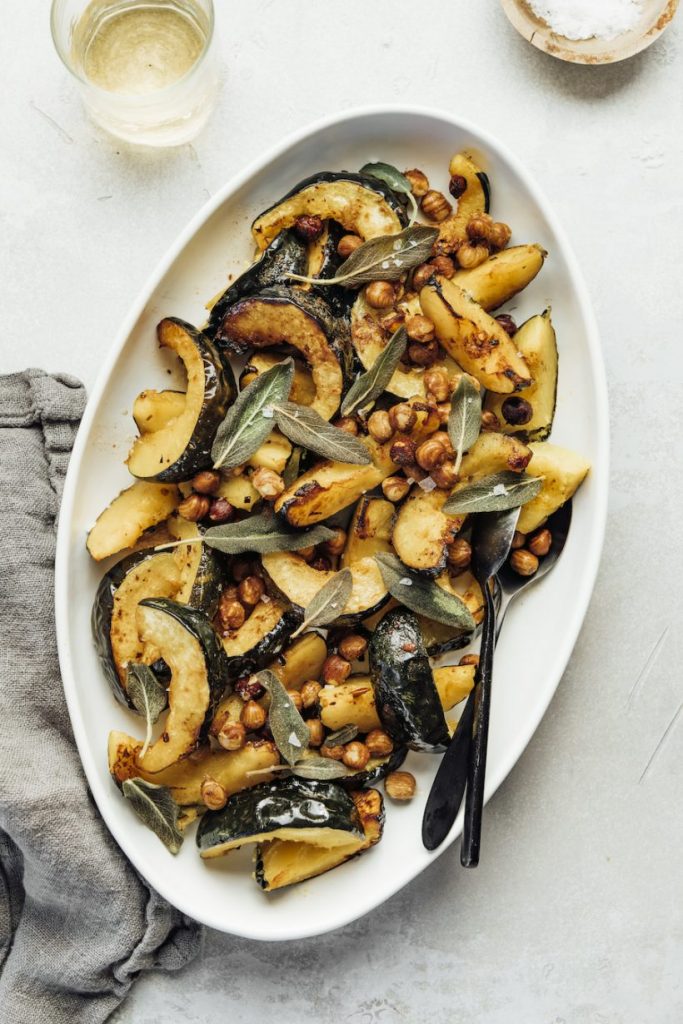
Lymphatic System
Echinacea: Echinacea is commonly used to treat or prevent colds, flu, and infections. Some studies show echinacea can lessen upper respiratory infections.
Calendula: This herb’s anti-fungal and antimicrobial properties help prevent infection. Calendula is also known to have anti-inflammatory and antioxidant components, which might help fight cancer, protect against heart disease, and ease muscle fatigue.
Dandelion: Dandelion is known to reduce stress on the liver. It can also help your liver filter harmful chemicals. Dandelion is also a good source of vitamin C.


